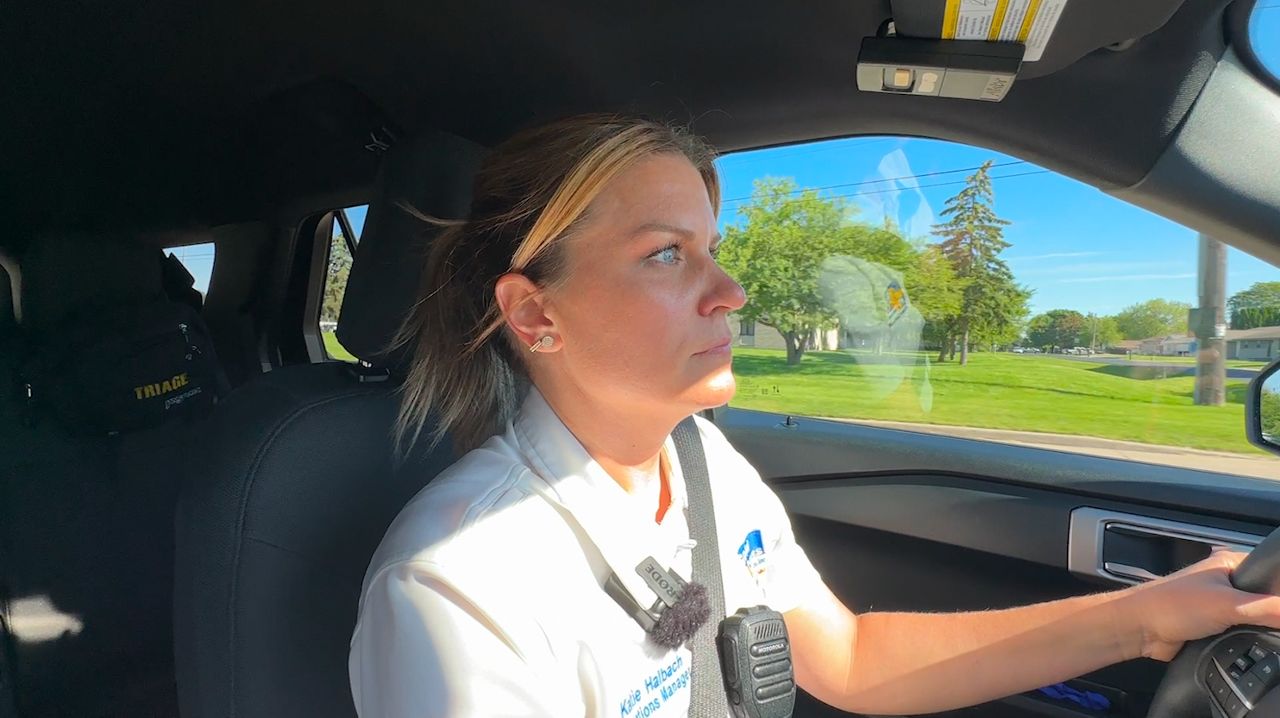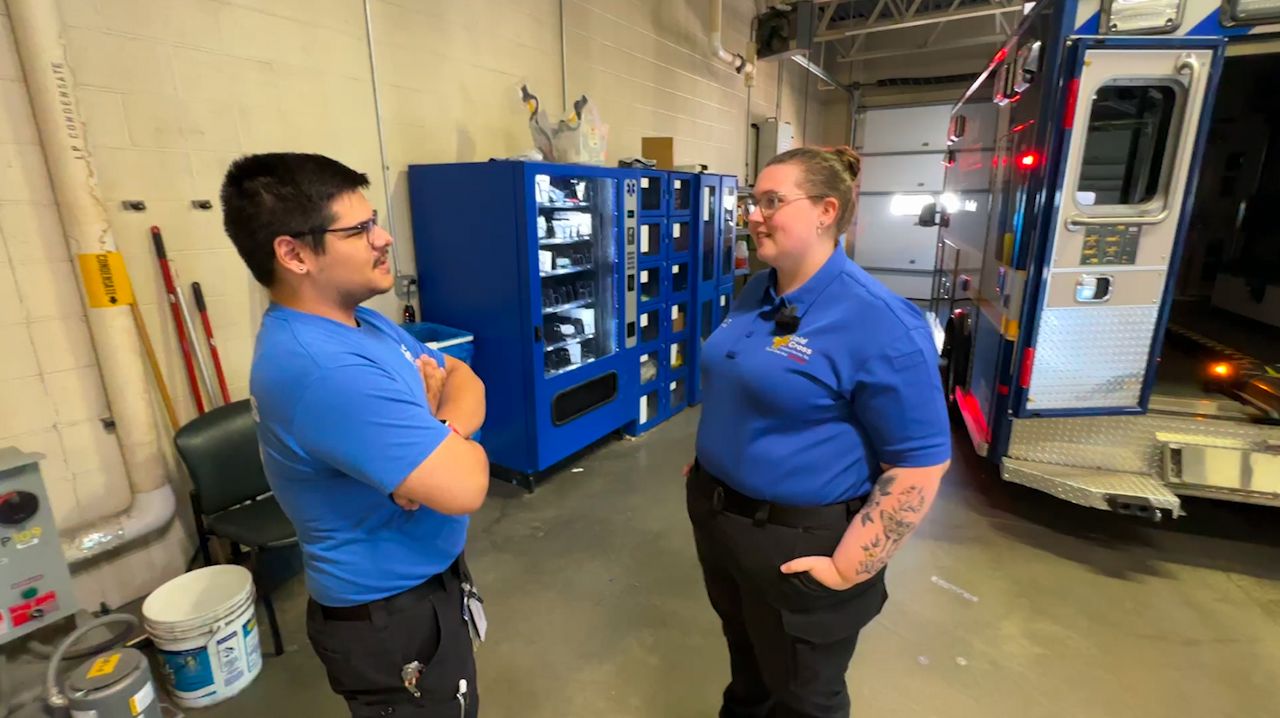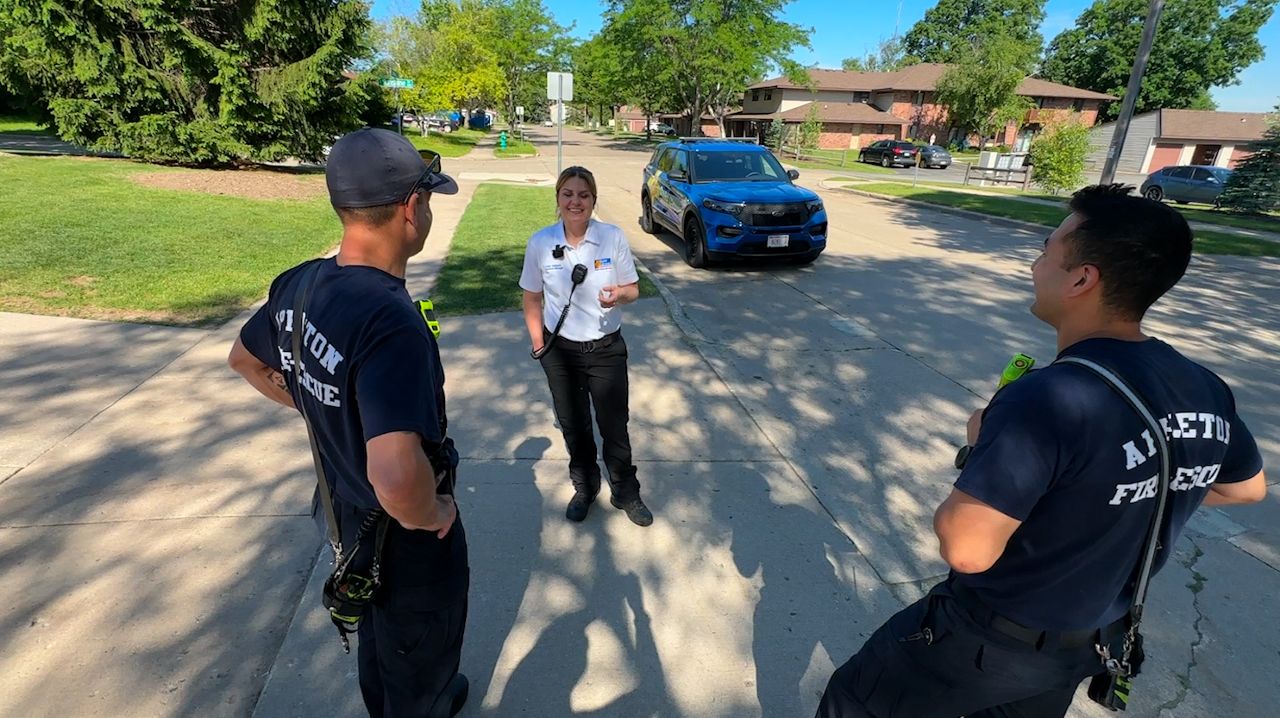MENASHA, Wis. — Not more than a few minutes after Katie Halbach left the parking lot of Gold Cross Ambulance Service in Menasha, the radio came to life with a number of calls for service.
Some were close to Appleton and the Fox Cities, while others were in small communities in Calumet County. Halbach said she never knows what the next call will be.
“A lot of times if it’s an emergency call, we’re en route to those. If it’s a non-emergency call, it kind of depends on what it is, how far away it is for us to go out there,” she said. “We’re going out and supporting whatever we can and are being a resource to our staff and the entire community.”
Halbach is at the wheel of the provider’s rapid response vehicle. It’s an SUV outfitted to help Gold Cross crews as well as other first responders.
It gives her and other managers the ability to get on scene and provide advanced, specialized care to patients when needed.
“I can be there and I can be dedicated to that call and that service,” Halbach said. “I can be there for my skill set, whether it’s the experience I bring to a newer person … or to be another set of hands on a situation where a crew may need those, more providers.”

Gold Cross started using the rapid response vehicle in the Fox Valley and surrounding counties around the clock, seven days a week, earlier this year.
“We kind of view this as a helicopter on wheels. When there’s bad weather and they can’t respond to a traumatic accident in our service area, this vehicle can always respond,” said Executive Director Nick Romenesko. “It’s got four-wheel drive, it’s ready to go. It can get on the road and get to those patients regardless of weather conditions.”
Much of the Gold Cross coverage area is rural. For paramedic Natalie Toeppler, having staff like Halbach alongside her in the field is helpful.
“It lets us turn around faster, get more care to more patients and allows us to be more efficient,” she said. “Our calls run more smoothly, and just better all-around care for patients.”

Halbach said she’s seen the difference bringing skills to the scene, like Rapid Sequence Intubation, can make for patients with airway trauma.
“You have those moments where you’re able to use what you have and the skill set that you have — and the medications and the knowledge you have — to actually be able to make a difference,” she said. “It lets you to know that what you’re doing is really making that difference.”




